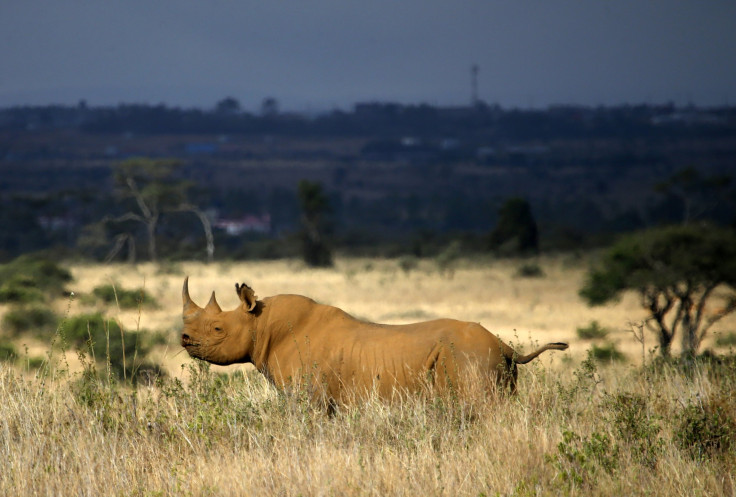Kenya To Microchip All Rhinos, Chips Will Provide ‘Crucial Evidence’ To Prosecute Poachers

Wildlife officials are looking for more clever ways to shield endangered African rhinos from increasingly brazen rhino poachers. In Kenya, that means inserting microchips into the horns of its rhinos.
“Poachers are getting more sophisticated in their approach,” Paul Udoto, spokesman for the Kenya Wildlife Service, or KWS, told AFP. “So it is vital that conservation efforts also follow and embrace the use of more sophisticated technology to counter the killing of wildlife.”
One of the challenges to curbing illegal rhino and elephant poaching in Kenya is the frequent collection of poor evidence. Of the 157 poaching-related cases in Kenya in the past three years, law enforcement has prosecuted less than 5 percent of them, and only 3 percent of those convicted were sentenced to jail, Bloomberg reported in September.
The rhino chips will provide “crucial evidence” during trials when one of the poached rhino horns is recovered.
“Investigators will be able to link any poaching case to a recovered or confiscated horn … contributing towards the prosecution’s ability to push for sentencing of a suspected rhino criminal,” KWS said in a statement.
The microchips, along with five scanners, were donated to Kenya’s wildlife officials by the World Wildlife Fund, or WWF, at a cost of $15,000.
Last month, Kenyan officials planned to tackle a surge in elephant and rhino poaching by enacting harsher punishments for unlawfully killing wild animals. The proposed Wildlife Conservation and Management Bill, if passed, will increase the fine for poaching offenses to as much as 10 million Kenya shillings, or about $114,000 USD – a major increase from the current penalty of 40,000 shillings.
The bill would also raise jail time for offenders from 10 years to 15 years.
“One of the issues is that the current punitive measures are very weak and we want to make them very harsh so we can deter people from poaching,” Aden Duale said in an interview in the capital, Nairobi, on Sept. 3.
Rhino poaching has increased significantly across Africa over the past few years. In South Africa, for instance, rhino poaching has increased over 5,000 percent since 2007, according to data from the South African Department of Environmental Affairs. This year alone has seen 688 rhino deaths at the hands of poachers in South Africa; in 2007, there were just 13.
Fueled by global demand for rhino horns, particularly in Asia where the horn is used in traditional medicines, poachers are shooting rhinos dead and chopping off their horns in increasing numbers.
"Every single rhino is under the threat of poaching at the moment," Barney Long, the Director of WWF`s Species Conservation Program, told Antara News in September.
© Copyright IBTimes 2024. All rights reserved.






















